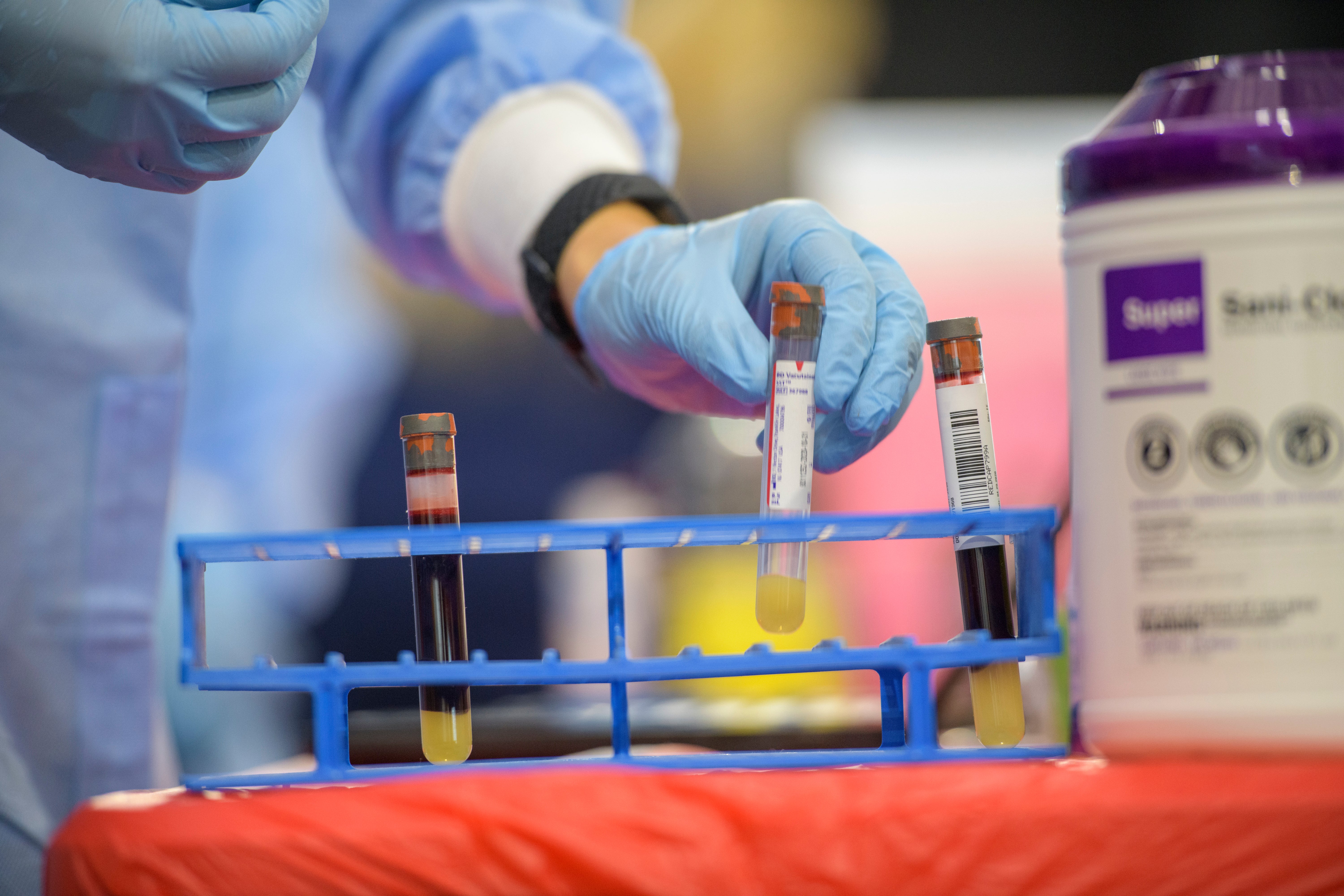Coronavirus immunity likely to last for months after infection, study suggests
People who recover from virus continue to produce 'high-quality’ neutralising antibodies seven months later, researchers find

Your support helps us to tell the story
From reproductive rights to climate change to Big Tech, The Independent is on the ground when the story is developing. Whether it's investigating the financials of Elon Musk's pro-Trump PAC or producing our latest documentary, 'The A Word', which shines a light on the American women fighting for reproductive rights, we know how important it is to parse out the facts from the messaging.
At such a critical moment in US history, we need reporters on the ground. Your donation allows us to keep sending journalists to speak to both sides of the story.
The Independent is trusted by Americans across the entire political spectrum. And unlike many other quality news outlets, we choose not to lock Americans out of our reporting and analysis with paywalls. We believe quality journalism should be available to everyone, paid for by those who can afford it.
Your support makes all the difference.People who have recovered from coronavirus are likely to be immune from re-infection for at least several months, new research suggests.
Scientists who studied a sample of nearly 6,000 Covid-19 patients found almost all produced “high-quality” neutralising antibodies five to seven months later.
While it has not yet been proven that coronavirus antibodies convey immunity, researchers at the University of Arizona said they believe their findings dispelled concerns that antibodies are only short-lived and indicated protection could last for years following infection.
The study also offers further hope for the effectiveness of vaccines currently in development around the world.
"Many concerns have been expressed about immunity against Covid-19 not lasting. We used this study to investigate that question and found immunity is stable for at least five months,” Deepta Bhattacharya, associate professor of immunobiology.
The study involved 5,882 volunteers who signed up for antibody blood testing in Arizona’s Pima County in April.
Some of those taking part had contracted coronavirus near the beginning of the pandemic, meaning the researchers were able to study the production of antibodies over one of the largest timeframes yet.
"The latest time-points we tracked in infected individuals were past seven months, so that is the longest period of time we can confirm immunity lasts," Dr Bhattacharya said. "That said, we know that people who were infected with the first SARS coronavirus, which is the most similar virus to SARS-CoV-2, are still seeing immunity 17 years after infection. If SARS-CoV-2 is anything like the first one, we expect antibodies to last at least two years, and it would be unlikely for anything much shorter."
Some earlier research found Covid-19 antibody levels to drop quickly after initial infection, providing only short-term immunity.
But Dr Bhattacharya believes those studies focused on short-lived plasma cells generated by the immune system’s initial response to the virus and failed to take into account long-lived plasma cells generated in the second stage of the immune response and the “high-quality” antibodies they produce.
Michael Dake, the university’s senior vice-president of health sciences and co-author of the study, claimed the research had “armed us with the knowledge that lasting immunity is a reality”.
But Dr Andrew Freedman, an infectious diseases expert at Cardiff University who was not involved in the study, said while the findings were encouraging they did not show participants were protected from re-infection with Covid-19.
He told The Independent: “You cannot be certain that the presence of neutralising antibodies equates to protection from infection. It’s very likely it does, but we can’t be certain of that.
“That’s the big unknown.”
There have been multiple cases of people being re-infected with Covid-19 after recovering from the disease, which scientists have warned shows “immunity is never 100 per cent”.
A study published in The Lancet this week documented the case of a 25-year-old man from Nevada who contracted two distinct variants of Covd-19 within 48 days, and suffered more severe symptoms the second time.
"Our findings signal that a previous Sars-CoV-2 infection may not necessarily protect against future infection,” said University of Nevada professor Mark Pandori, lead author of the study.

Join our commenting forum
Join thought-provoking conversations, follow other Independent readers and see their replies
Comments